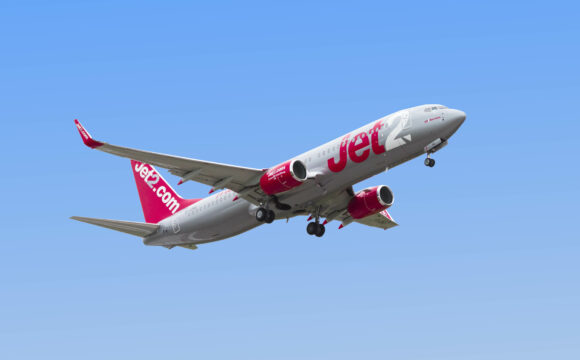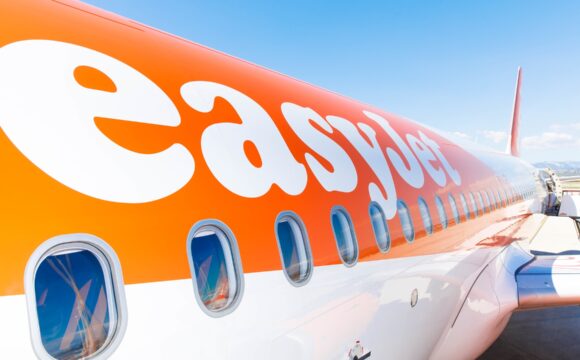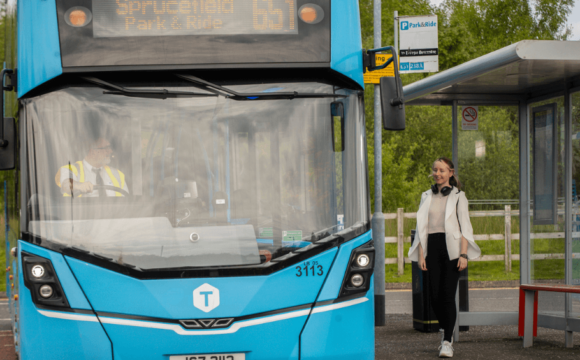By Kirsty Johnston, Editor
The Civil Aviation Authority and the Department for Transport have written a joint letter to the travel industry to extend their “appreciation for… efforts to support passengers through the recent travel disruption”, but to most this will be of little consolation as the letter fails to address some key points of governmental responsibility, instead passing blame almost fully to the travel sector.
The CAA and DfT said “it is excellent to see people travelling by air again in such strong numbers”, however goes on to say that they hope the industry shares their view “that the outcomes for too many consumers recently have been unacceptable”.
The letter then seems to yet again place blame for the recent disruption on airlines and airports, pointing the finger at “planning and scheduling” not reflecting capacity. However many in the industry have previously pointed out that it was staff shortages that caused the chaotic scenes, not aircraft capacity. Although the Transport Secretary has previously suggested that airlines were “overbooking flights”.
The letter demands that airline’s “schedules must be based on the resources you and your contractors expect to have available”. Is the letter making reference to Grant Shapps claim of airline over booking? Or is it saying that the government will not be relaxing their vetting protocols for air-side staff nor adding EU workers to the Shortage Occupation List to help with staff shortages? Indeed the joint letter seems to raise more questions that it answers.
The letter goes on to state that both the CAA and the DfT expect “that you and all those involved in delivering aviation services will take all possible steps to prepare for and manage passenger demand that helps to avoid the unacceptable scenes we have recently witnessed”, but does not mention what they will be doing to help avoid repeat scenes.
The letter says that the CAA, DfT and the sector as a whole “all share a common goal to de-risk the summer period”, however this “common goal” does not seem to be a message of all sides admitting fault and agreeing to work together, but simply the government continuing to pass blame fully onto the sector. They say they “believe more needs to be done to give us all better assurance that this goal will be delivered” and have “set out five specific expectations” they require of “partners in the aviation sector”.
Northern Ireland Travel News have questioned the CAA on why the letter makes no reference to the government red tape regarding new staff employment (following many job losses due to Covid and the government travel restrictions). We have also asked the CAA to provide a joint quote with the DfT on when they plan to implement Aviation Minister Robert Courts proposal that air travel companies will be allowed to train staff to perform roles before their security clearance is granted?
We have asked them to confirm if the government will relax their vetting protocols for air-side staff. Previously a Heathrow spokesperson claimed that it can take anywhere from between three and six months “from recruitment to starting work”. Seeing as how the travel restrictions were only fully lifted mid-March, even employees who were hired within days of this happening would only, at the very earliest, now be able to start work, which would not have helped with the recent chaos.
We have also asked if the CAA and DfT are suggesting that airlines (who have already been heavily impacted by the government’s Covid travel restrictions and shut-downs) operate at a lower capacity because the government won’t fast-track employee security checks? This would heavily restrict any possible profits the airline would make that could help with the overall recovery of the sector.
We have also asked for comment on why the government has shot down suggestions from the industry that EU workers should be allowed to cover the staff shortages by being added to the Shortage Occupation List. Some of the occupations already on this list include graphic designers, ballet dancers and chefs.
We have not yet received a response.
Dr Pavlos Arvanitis, Senior Lecturer in Aviation Management at the University of Bedfordshire says airports and airlines are faced with a very complex problem and it is unfair to judge them too harshly for the recent failures.
“The chaos at airports is intensely frustrating but we must resist the temptation to accord too much blame to any party involved..
He said that while it’s true “airports and airlines are letting passengers down”, there are “a lot of factors outside their control”.
“The reality is a large proportion of staff involved in facilitating any given flight don’t work directly for the airport the plane takes off from, or the airline that owns and runs the plane. Air Traffic Controllers are mostly NATS employees (National Air Traffic Services), border control officers are Border Force employees while baggage handlers and check in agents are also likely to be employees of a ground handling company. This means airports and airlines only have so much control: they depend on many other public and private entities for the system to run smoothly.
“In addition, fixing staff shortages can only be a slow process. The aftershock of the pandemic is a major factor. Airlines have struggled to re-employ staff to pre-pandemic levels as trained workers have moved to sectors with more job security, where the risk of redundancy and Covid-19 related disruption is lower.
“Those employees who have returned now need to refresh their training to be compliant with flight safety rules and procedures. The icing on the cake is that anyone who works past security at every airport, in any position, has to go through a rigorous security clearance that takes months to complete.
“Lead times in the sector are long and unfortunately things cannot change overnight. We all want to believe that given the scenes at airports over the last few weeks the industry will pull its sleeves up and be ready for the full summer season. This is seven weeks from now. Action has to be taken quickly so the situation at airports can ease by mid to late July when most schools break for summer.”
You can find the letter in full below:
Dear Colleague,
Following the Secretary of State and Aviation Minister’s meeting with you on Wednesday 1 June, we wanted to write personally to you to extend our appreciation for your efforts to support passengers through the recent travel disruption and to set out what we see as the priorities for minimising further disruption into and through the summer period.
After nearly two years of travel restrictions, it is excellent to see people travelling by air again in such strong numbers. However, we trust you share our view that the outcomes for too many consumers recently have been unacceptable.
It is imperative that we see an improvement to the resilience in the system, planning and scheduling to reflect the available capacity ahead of the summer period. We appreciate that some airports and airlines have continued to deliver a good service despite pressures and we are grateful for your efforts in this regard.
We also recognise that there are a range of causes of the disruption including some of which are outside your control, for example air traffic control delays in other countries and that this is not a solely UK issue. Nonetheless, our expectation is that you and all those involved in delivering aviation services will take all possible steps to prepare for and manage passenger demand that helps to avoid the unacceptable scenes we have recently witnessed.
We all share a common goal to de-risk the summer period but we believe more needs to be done to give us all better assurance that this goal will be delivered. Against this backdrop we thought it would be helpful if we set out five specific expectations we have of our partners in the aviation sector:
- Summer Schedule – Firstly we think it’s important that each airline reviews afresh its plans for the remainder of the summer season until the end of September to develop a schedule that is deliverable. Your schedules must be based on the resources you and your contractors expect to have available, and should be resilient for the unplanned and inevitable operational challenges that you will face. While cancellations at any time are a regrettable inconvenience to passengers, it is our view that cancellations at the earliest possibility to deliver a more robust schedule are better for consumers than late notice on the day cancellations.
- Airport Partner Working Groups – Second, we would ask that partners at the local airport level work collaboratively on resilience planning and assurance as a system and not just in isolation. We propose that all airport CEOs take a leading role to bring together the airlines and ground handlers that operate at your airport, along with air traffic control and Border Force to create Airport Partner Working Groups. The airport is well placed to act as the coordinator of this local planning and we know that many have already made arrangements to bring together key local partners to improve resilience. The objective should be to ensure a more coordinated strategic approach to deliver a safe and resilient operation as a system and thus improve the consumer experience, whilst respecting commercial confidentialities. The Airport Partner Working Groups will be expected to report to the Strategic Risk Group that we are establishing with CEOs from airports, airlines and ground handlers to provide assurances based on your thorough review of your collaborative plans. The Strategic Risk Group will meet weekly and be chaired by the Aviation Minister. This is in addition to the Summer Resilience Group chaired by David Silk, which shall also move from a fortnightly basis to weekly.
- Consumer Rights – Third, we expect that when there are unavoidable cancellations, delays and denied boarding cases that passengers are promptly, clearly and empathetically communicated with. This should include informing passengers of their consumer rights in relation to refund and compensation routes if applicable. Also when dealing with operational challenges, we expect you to have the processes and resources in place to keep consumers informed, such as having sufficiently staffed call centres and user friendly digital channels to ensure refunds and compensation are paid in good time. We would like to express our thanks to all those that have been doing so in recent weeks despite the challenges you have had. Many of you have increased your communications to help prepare passengers as they travel after a long period away. As recently announced, DfT will also imminently be developing an Aviation Passenger Charter, with input from industry and consumer groups, which will further support consumer access to key information about their rights and responsibilities when travelling by air. Consumers whose flights have been cancelled are entitled to a refund or re-routing at the earliest opportunity, and in certain circumstances compensation. When customers are trying to return home, we would encourage you to use re-routing as much as possible. If airlines cannot re-route passengers on their own services or partner airlines on the same day they should identify re-routing options on alternative airlines. It is also important that where passengers are delayed they receive suitable subsistence and, if they need to stay overnight, suitable accommodation promptly. The CAA’s guidance on ‘re-routing’ options on alternative airlines can be found here. If there is evidence that an airline is systematically letting consumers down when it comes to those rights, the CAA will not hesitate to escalate matters with its enforcement role.
- Providing assistance to disabled and less mobile passengers – Fourth, we are aware that many of you have faced issues with the provision of assistance for disabled and less mobile passengers. As you know failure in this area is simply unacceptable and this is a key area to get right. The CAA has separately written a letter to all airports and airlines highlighting some specific concerns about the assistance service for disabled and less mobile passengers and the importance of immediate improvements.
- Safety and Security – Fifth, safety and security must not be compromised. We stress that the sector’s strong track record for ensuring the highest safety and security standards must be maintained and not weakened as you plan for, and respond to, the challenges you face over the coming weeks and months. Safety and security must never be taken for granted and we would expect you to continue to seek assurance within your organisation that this is the case given your operating challenges.
Following the many conversations we have had with industry partners, we welcome the high level of support for these five expectations. We would, however, like to understand the basis on which your businesses are gaining assurance that these five expectations will be met and more broadly how your business will be able to meet the goal of providing a resilient service over the summer period.
Through the Strategic Risk and Summer Resilience Groups we will continue to work with you to identify possible interventions to further improve the resilience of the sector, mirroring the approach that the Department has taken to support the road haulage sector through its recent period of operational challenges. We look forward to working with you to get the UK aviation system back where it belongs as a world leading, strategically important industry that we can all be very proud of. Both the Department and the CAA will play our full roles in our aim of ensuring the recovery for air travel is a success. Let’s start with working together to make sure the summer is a great success for the British public.
Yours sincerely,
Richard Moriarty Rannia Leontaridi CAA CHIEF EXECUTIVE
Director General, Aviation, Maritime and Security, DfT
















